Now, more and more North Americans are looking to retire in Portugal.
For decades, Portugal been one of the most popular retirement destinations. Especially for citizens of the U.K. and Northern Europe.
Top Destinations:
Whether you’re looking for fun and sun, a peaceful retirement, or the chance to earn some extra income, you’ve got a real world of opportunity open to you… In short, we’ve done our best to narrow down your best options, but only you can decide the right country for you.
Best For:
How Much Will It Cost You To Live Overseas?
The only honest answer is, we have no idea. And neither does anyone else. The only one who can answer that question is you. Here’s the most important thing to understand about budgeting your new life overseas…
Follow Us:
Join our Weekly Newsletter
Overseas Property Alert
Sign up for our weekly newsletter to receive expert insights on the best international real estate investment opportunities.
Upcoming Events
Live and Invest In Spain Conference
Offshore Wealth Summit
Greece Workshop
VALENCIA, SPAIN
Sep. 17-19, 2025
PANAMA CITY, PANAMA
Oct. 15-17, 2025
VIRTUAL
Nov. 13, 2025
Contact Our Events Team
Reach us with your questions by email at: events@liveandinvestoverseas.com
Unlock The World
Overseas Havens Reports
Conference Kits
Lahardan Books
Our Customer Service team is here to assist with any questions or concerns CustomerService@LiveandInvestOverseas.com
Top Destinations:
Whether you’re looking for fun and sun, a peaceful retirement, or the chance to earn some extra income, you’ve got a real world of opportunity open to you… In short, we’ve done our best to narrow down your best options, but only you can decide the right country for you.
Best For:
How Much Will It Cost You To Live Overseas?
The only honest answer is, we have no idea. And neither does anyone else. The only one who can answer that question is you. Here’s the most important thing to understand about budgeting your new life overseas…
Follow Us:
Join our Weekly Newsletter
Overseas Property Alert
Sign up for our weekly newsletter to receive expert insights on the best international real estate investment opportunities.
Upcoming Events
Live and Invest In Spain Conference
Offshore Wealth Summit
Greece Workshop
VALENCIA, SPAIN
Sep. 17-19, 2025
PANAMA CITY, PANAMA
Oct. 15-17, 2025
VIRTUAL
Nov. 13, 2025
Contact Our Events Team
Reach us with your questions by email at: events@liveandinvestoverseas.com
Unlock The World
Overseas Havens Reports
Conference Kits
Lahardan Books
Our Customer Service team is here to assist with any questions or concerns CustomerService@LiveandInvestOverseas.com

We Value Your Privacy! We will not share your email address with anyone else, period.
Home » Best Countries To Live, Invest, And Retire Overseas » Europe » Portugal: Everything You Need To Know 2025 » Retire In Portugal
Portugal Is One Of The World's Top Retirement Havens...

Now, more and more North Americans are looking to retire in Portugal.
For decades, Portugal been one of the most popular retirement destinations. Especially for citizens of the U.K. and Northern Europe.
And, thanks to Portugal’s strong historic and cultural links with England, English is widely spoken in the country in general and even more so in the Algarve. Retirees here are able to get by without speaking much Portuguese, but the experience is obviously better if they make an effort to learn to communicate with the locals.
As part of the European Union, Portugal has much going for it:

Reviewed By Kathleen Peddicord
Kathleen is the Live and Invest Overseas Founding Publisher. She has more than 30 years of hands-on experience traveling, living, and buying property around the world.



Start Your New Overseas Life Today
A world full of fun, adventure, and profit awaits! Sign up for our free daily e-letter, Overseas Opportunity Letter, and we’ll send you a FREE report on the 10 Best Places To Retire In Style Overseas Today 2024
We Value Your Privacy! We will not share your email address with anyone else, period.
People are looking harder at Portugal as a retirement destination. One of the main reasons is because of the recent introduction of legislation. It eliminates local taxes on foreign pensions and other retirement income.
Portugal has a new Non-Habitual Resident regime.
Anyone who has not been resident in Portugal for the previous five tax years receives pensions and foreign-source income. Both free from local taxes for 10 years. This if the applicant’s home country has a double-taxation treaty with Portugal.
The United States, Canada and the United Kingdom all have such treaties in place. So, you can sign up with a local tax office once you have acquired the regular residence permits.
To qualify for the NHR regime, an individual must:
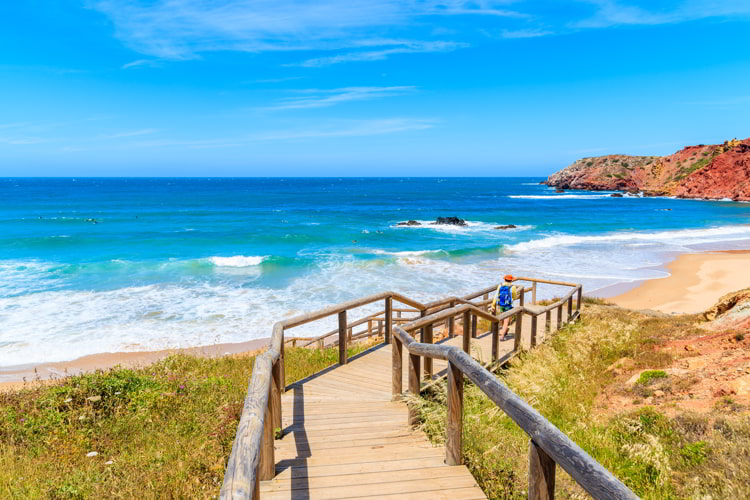
There are no special visa requirements for non-European Union retirees in Portugal. And, the process is the same whether you are 26 years old or 62 years old.
Most importantly, you need to start the process in your home country and it might take some time. Most applicants opt for a Type 1 Resident Visa to retire in Portugal. This is available from a Portuguese consulate abroad. But, you must get it within three months of moving to the country.
Once in-country, applicants have six months to apply for a Resident Permit. The permit is renewable every two years. And after five years you can convert it to a permanent residency permit.
[cp_popup display=”inline” style_id=”87607″ step_id = “1”][/cp_popup]
For instance, citizens of the EU must apply for a residence permit at the local town hall. Or at an office of the immigration authorities. This is if you want to remain in Portugal for more than three months. And, you must do it within 30 days of arriving in the country.
The only requirement is proof that you can support yourself and a valid EU passport. The certificate is valid for five years.
The Golden Visa residency permit is available to non-EU citizens who:
Applicants need only stay in the country 7 days during the first year. And 14 days in the following two years. Family members can tag along. The initial permit is valid for five years.
After this applicants can apply for permanent residence. After six years they can apply for full Portuguese citizenship. In short, a great opportunity for retirement in Portugal.
The vast majority of foreign retirees moving to Portugal settle in the Algarve.
Silves and Lagos are particularly appealing to retire in Portugal. In these two spots, you can enjoy medieval towns and fishing villages. Or open-air markets… local wine and some of Europe’s best sandy beaches.
Southern Portugal enjoys one of the most stable climates in the world… with 3,300 hours of sunshine per year. In short, there are more sunny days each year in the Algarve than anywhere else in Europe.
This is why it is one of the top destinations on the continent for Europeans seeking summer sun. Or looking to escape the cold, dark days of winter up north.
Portugal has a strong historic and cultural links with England. This is why English is common in the country. And even more so in the Algarve.
Retirees here are able to get by without speaking much Portuguese. But the experience is better if they make an effort to learn to communicate with the locals.
Another option for those looking to retire in Portugal is Braga.
Braga is well-situated, less than an hour from Portugal’s second city, Porto, as well as the country’s rugged Atlantic coastline. The sprawling landscape of Minho Province surrounds it, providing ample opportunities to
commune with nature.
Above all, what Braga offers is tranquility in a well-appointed, well-maintained, and elegant city. It has the Mediterranean climate that Portugal is famous for, despite not being on the Mediterranean.
Read more: World’s Best Places To Retire
U.S. Medicare is not honored in Portugal. But the standards of health care are excellent in most parts of the country.
The health care system ranks among the world’s top 20 in performance by the World Health Organization. And this is considered by many as a main reason to retire in Portugal.
The terms that apply to Portuguese citizens also apply to Portuguese residents.
In short, these residents must be citizens of EU countries, and they need to file an application. Non-EU residents that apply need medical insurance to retire in Portugal.
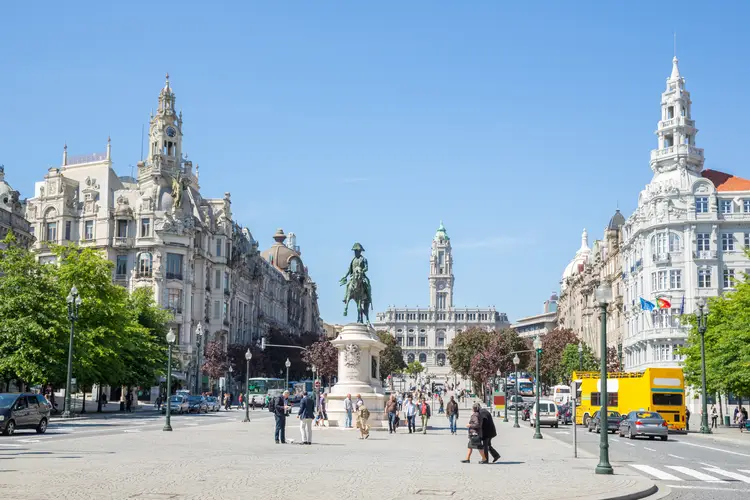
Above all, the cost of living in Portugal is among the lowest in Western Europe. On average 30% lower than in any other country of the region.
A retired couple could live here comfortably but modestly on a budget of US$1,500 per month.
With a budget of US$2,000 per month or more, you could retire in Portugal… with an appointed lifestyle in the heart of the Old World.
Real estate in Portugal is undervalued and among the most affordable in Europe. It has one of the most favorable price-to-rent ratios (a measure of the profitability of owning a house). And most favorable price-to-income ratios (a measure of affordability) in the region.
In short, housing is cheaper to buy… and investors can make more money from rentals than in many other European countries.
When it came to an overseas retirement, Mandy and Peter knew what they were looking for…
“We wanted to retire somewhere where the weather is better, the pace of life is slower, and the quality of life is higher,” says Mandy. “We’d come to Portugal for years on vacation and the whole family loved it.”
For instance, the couple chose to settle in the interior of the Algarve. The closest city is Loulé. The Algarve is famous for its long coastline and super-sunny weather, so why would anyone relocate here and not choose to live by the sea?
Mandy explains, “We wanted to live here year-round, and we were very aware that the coast could be touristy with lots of holiday-goers. It’s packed out in July and August but empty in the winter.
“Some of the housing complexes are very quiet because people have gone away. We wanted to be somewhere we could live all year with a stable community nearby. Also, we wanted to embrace the Portuguese lifestyle and its people. Most importantly, we wanted to be in authentic Portugal rather than on the coast, where you could be anywhere in Europe, really. For example, in July and August, when it’s very busy, you’ve got the option of going down there. But at the same time, even during the peak of tourist season, it’s quiet here. It’s bliss.”
“You can easily get around, too. And, we really like the people here,” Peter adds. “And it’s less expensive in this area…”
“We knew we wanted to be inland,” says Mandy. “We had been here before, as a friend retired early and introduced us to this area. It’s not too far from civilization… if you want it. In the nearest town there’s a post office, a doctor, supermarket, etc. It’s well-situated. We’re near enough to the motorway up to Lisbon, but not affected by all the traffic.
“We love the view here inland, the lifestyle is very relaxing, and it’s not expensive…
“The local people are wonderful and have embraced us. We’ve never had any issues. People couldn’t be more helpful and there are quite a few expats living near us. There are a lot of like-minded people. I think anywhere in Portugal you’ll find expats nearby, but that wasn’t why we chose to be here. It evolved.”
Peter adds: “We love the climate here. It’s peaceful, and we can be most places on the coast in 20 minutes.”
Peter chuckles when asked: What do you do in a typical day? “I get asked that a lot. It varies quite a bit. We don’t set an alarm clock anymore. It’s all about relaxation. We’ve got the time to do things for ourselves now, and we can do things more thoroughly. We’ve got a garden, which we never had time for before. We go to northern Portugal and Spain, do a bit of traveling…
“We do quite a lot of walking. We spend time down at the marina. It’s nice; the best of both worlds. You’ve got the coast if you want it, and then, if you want a break, you go to the city.
“We work out, try to keep healthy. Everything is on our doorstep, here. And the great thing is, there aren’t many people or much traffic, and most of the roads have been improved.”
Mandy continues, “We can travel throughout Europe. We’ve just got so much to choose from. We’re enjoying not being up against it, time-wise… doing the things we never had time to do. Then we have the family. We have a lot of visitors. It’s quite busy, but a nice lifestyle.
“Life is so different over here. We spend more time outdoors. Many people play golf, go to the beach… there are so many options…”.

Reviewed By Kathleen Peddicord
Kathleen is the Live and Invest Overseas Founding Publisher. She has more than 30 years of hands-on experience traveling, living, and buying property around the world.



Start Your New Overseas Life Today
A world full of fun, adventure, and profit awaits! Sign up for our free daily e-letter, Overseas Opportunity Letter, and we’ll send you a FREE report on the 10 Best Places To Retire In Style Overseas Today 2024
We Value Your Privacy! We will not share your email address with anyone else, period.
Above all, the cost of living in Portugal is among the lowest in Western Europe. On average 30% lower than in any other country of the region.
It is possible to retire in Portugal on US$2,000 a month, especially in cheaper areas. This amount can pay for basic needs like housing, food, transport, and bills. But, you may need to budget wisely and adjust your lifestyle based on your personal situation and choices.
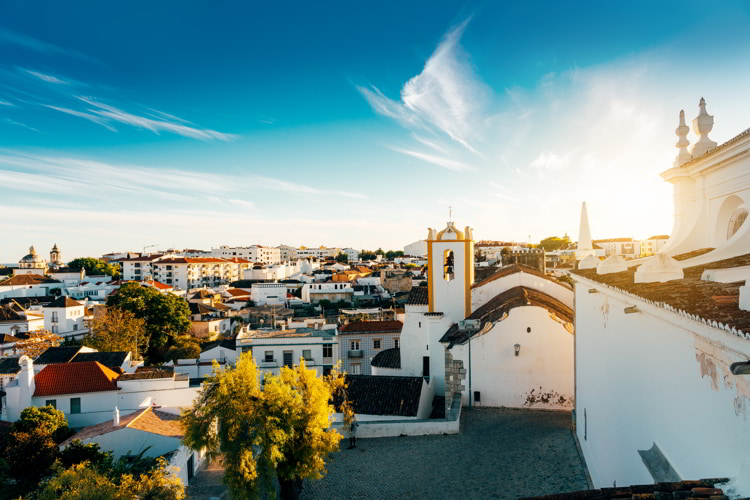 . '
. '
 . '
. '
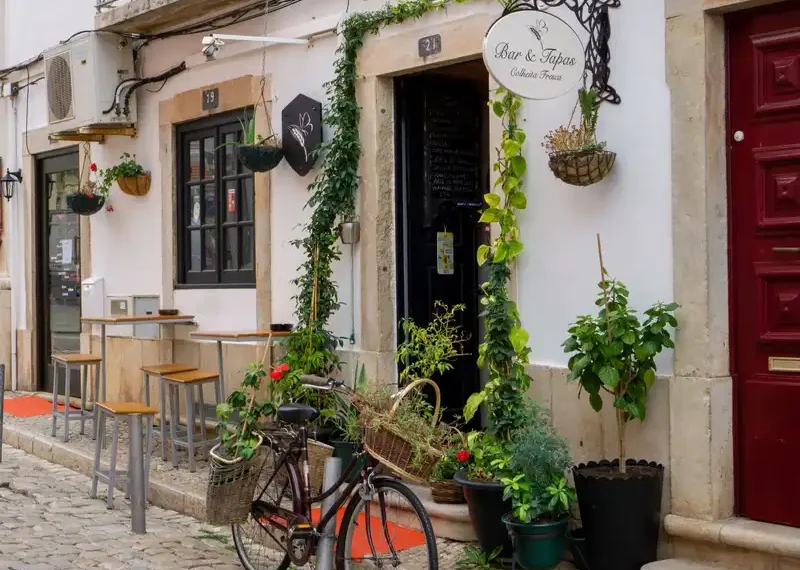 . '
. '
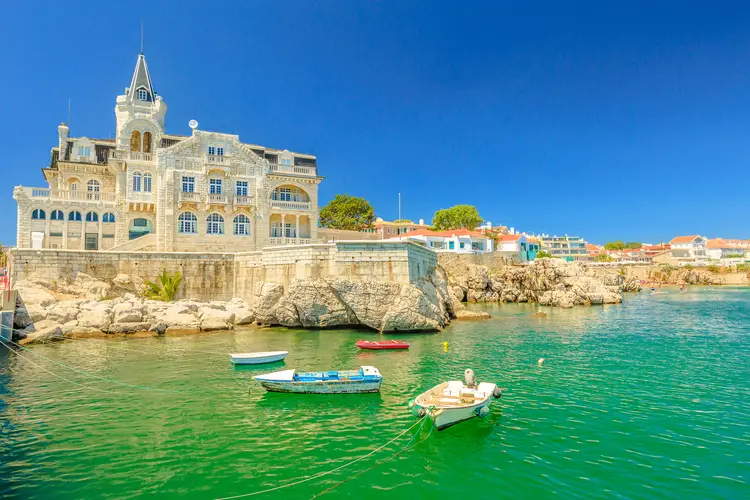 . '
. '
 . '
. '


We Value Your Privacy! We will not share your email address with anyone else, period.
As seen in

© 2008 – Live and Invest Overseas™ – All Rights Reserved.
Top Countries
Budgets
Affordable
Resources
Real Estate
Overseas Property Alert
How To Become Independently Wealthy And Fund The Lifestyle Of Your Dreams
Buying Real Estate For Cashflow
Discover tips and strategies used by global property investing veterans
Explore Our Latest Posts
Learn how to invest and purchase property abroad…
Conferences
Live and Invest In Spain Conference
Offshore Wealth Summit
GREECE WORKSHOP
Contact Our Events Team:
Toll-Free U.S. and Canada:
1 (888) 627 8834
From Outside North America:
1 (443) 599 1221
Working Hours
Monday – Friday 08:00 am – 17:00 pm EST.
Reach us with your questions by email at: events@liveandinvestoverseas.com
Store
Overseas Havens Reports
Conference Kits
Lahardan Books
Services
Free Report
THE 10 BEST PLACES TO RETIRE IN 2025

Sign up to receive the FREE daily e-letter, Overseas Opportunity Letter and we’ll immediately email you our editors’ latest research report…
We Value Your Privacy! We will not share your email address with anyone else, period.
Follow Us:
© 2008 - Live and Invest Overseas - All Rights Reserved.
RETIRE OVERSEAS AND LIVE LIKE ROYALTY
Sign up for FREE to learn how. Plus, check out our FREE report on THE 10 BEST PLACES TO RETIRE
RETIRE OVERSEAS AND LIVE LIKE ROYALTY
Sign up for FREE and learn how to live the good life on a modest budget, find bargain property, and more. Plus, check out our free report on the 10 BEST PLACES TO RETIRE.
We Value Your Privacy! We will not share your email address with anyone else, period.